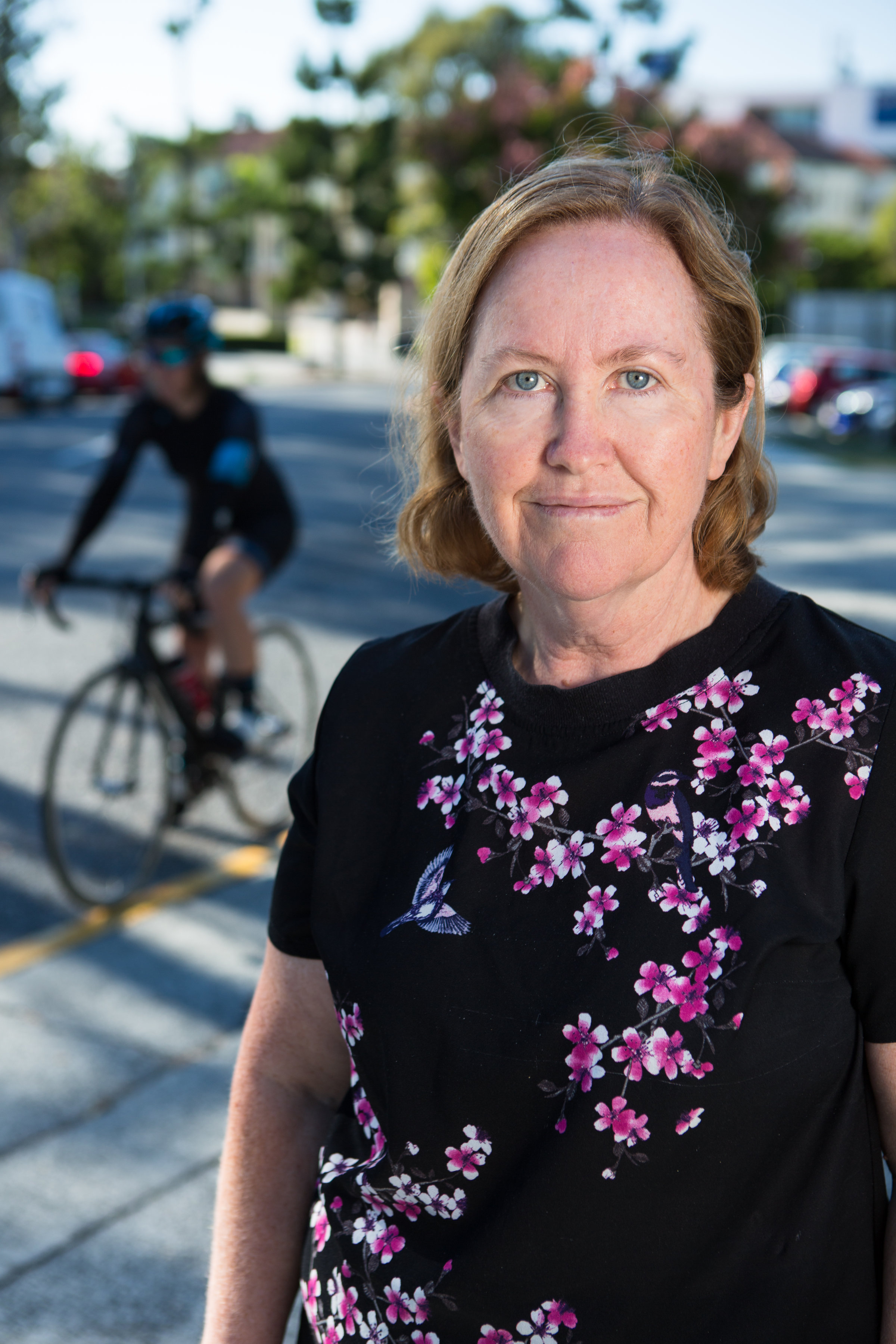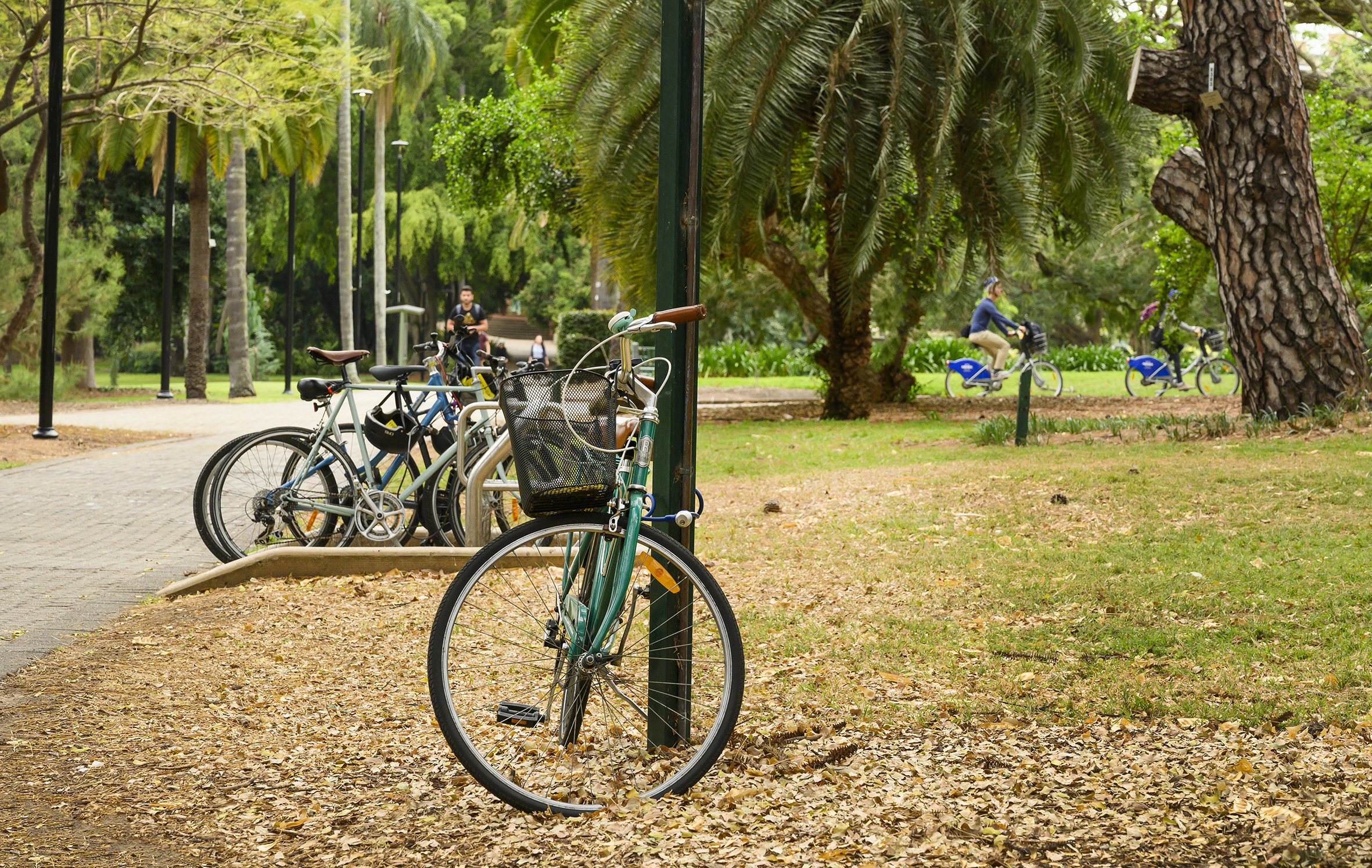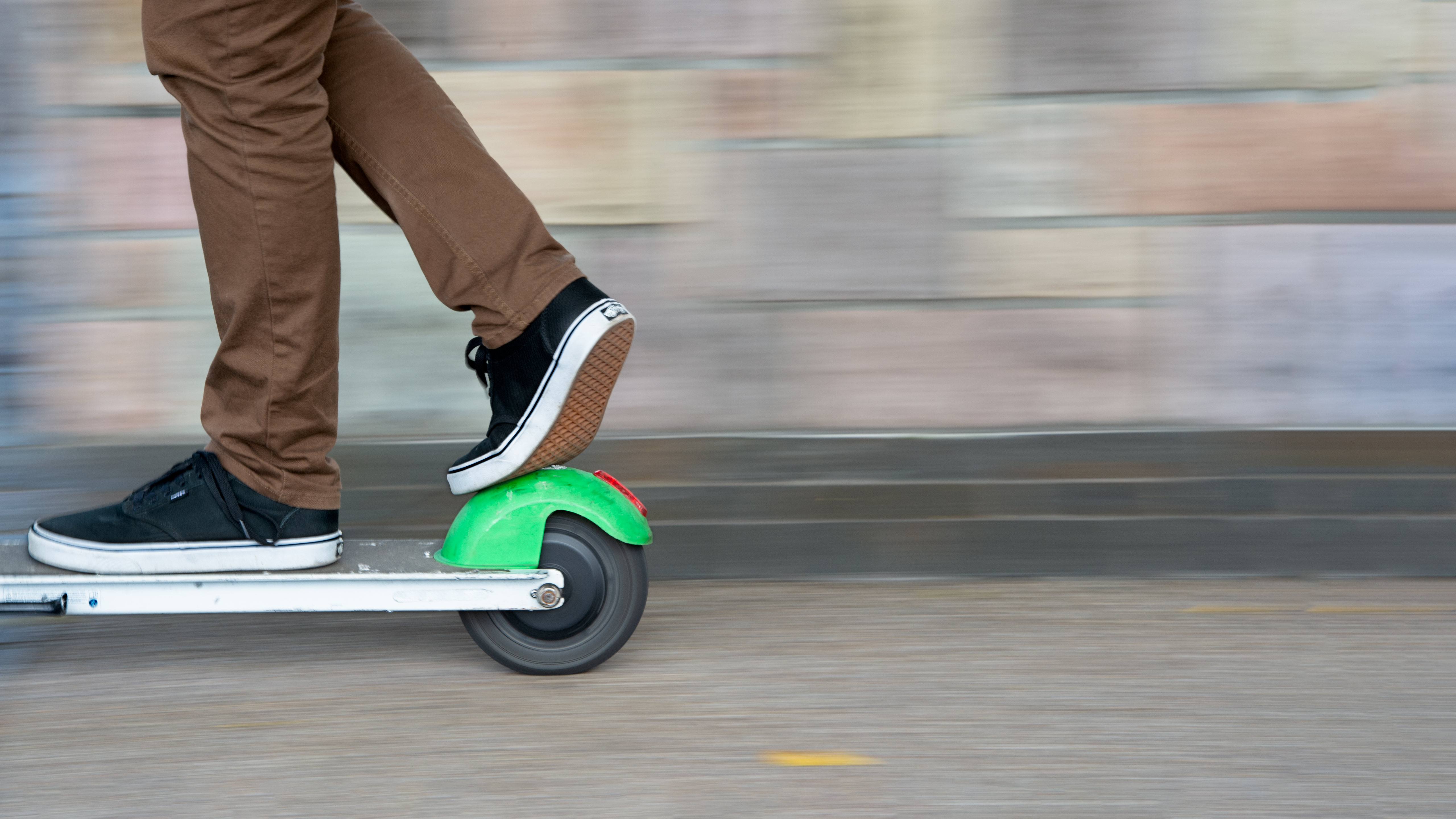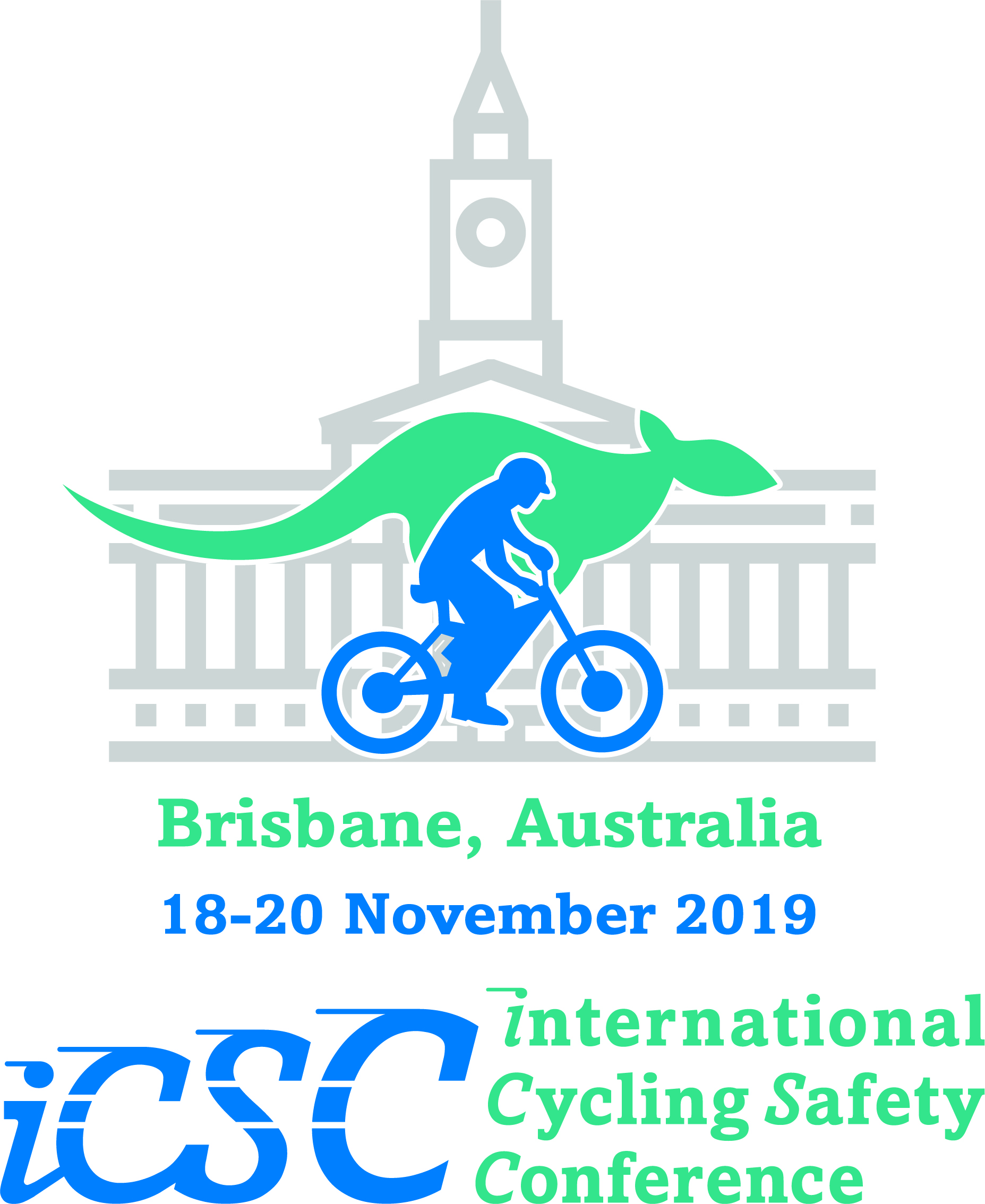
Cycling safety researchers and practitioners from around the world will try out some of Brisbane’s best bikeways when they arrive in town in November for the 8th International Cycling Safety Conference (ICSC2019) at QUT.

It’s the first time the event has been held in the Southern Hemisphere and – in addition to the latest research and practices – the program will feature technical tours of cycling hotspots, including the brand new 500-metre section of the Bicentennial Bikeway in the Brisbane CBD near QUT Gardens Point.
Around 160 delegates from 20 countries will visit the Queensland capital for the conference, which will be held at QUT’s Gardens Point campus (November 18-20) and hosted by QUT’s Centre for Accident Research and Road Safety-Queensland (CARRS-Q).
With a focus on safety, presentation topics range from on-road cycling, off-road cycling, e-bikes and infrastructure, through to topical issues such as cyclist interaction with cars, e-scooters and automated vehicles.
There will also be a “People’s Night” on November 20 from 5pm at The Cube at QUT Gardens Point, where Brisbane cyclists and other interested people can chat to researchers, see digital displays on cycling safety and enjoy free food. (Register here.)
CARRS-Q researcher and ICSC2019 conference chair Professor Narelle Haworth said Brisbane’s climate, accessibility and emerging cycling culture provided an ideal host location.
“It’s an opportunity to learn about the best initiatives around the world and to also showcase what Brisbane can offer cyclists and how the city is evolving to encourage active lifestyles and commutes,” she said.

The conference started as a Dutch initiative, with the first two conferences held in The Netherlands, which is widely regarded as the world’s number one cycling nation.
Presenters at ICSC2019 in Brisbane are coming from the world’s top five countries for cycling popularity – The Netherlands, Denmark, Germany, Sweden and Norway – along with Belgium, UK, Ireland, Ethiopia, Japan, China, USA, New Zealand and Australia.
They will include visiting Dutch researcher Professor Divera Twisk, who has been researching cycling safety at QUT for the past year.
In addition to two workshops, four technical tours of Brisbane bikeways will kick off the conference on November 18 and are already heavily booked by delegates. The rides will include the Bicentennial Bikeway, the new Woolloongabba Bikeway and the V1 bikeway.

Highlights of the conference program include:
- Trends and innovative research in cycling safety [keynote presentation] – Professor Christopher Cherry, The University of Tennessee, USA.
- How do cyclists interact with automated buses? An overview of research findings – Marjan Hagenzieker, Delft University of Technology, Netherlands.
- Cyclists interacting with self-driving buses – hypotheses and empirical findings in real traffic – Torkel Bjørnskau, Institute of Transport Economics, Norway.
- Speed pedelecs [electric bikes] on the roadway: A naturalistic riding study – Marjolein Boele, SWOV Institute for Road Safety Research, Netherlands.
- Cellphone ‘zombies’ [pedestrians] in the cycle-lane: A video-based study of interactional adaptations – Mike Lloyd, Victoria University of Wellington, New Zealand.
- Infrastructure challenges for designing roads for small wheel transportation such as electric scooters: a complete streets perspective – Yi Wen, University of Tennessee, USA.

The conference will tackle e-scooters and electric bikes as well as traditional two-wheelers.
- E-scooter use, and interactions with other footpath users, in downtown Brisbane, Australia – Narelle Haworth, QUT, Australia.
- Safety4Bikes: Assistance systems for cycling children to increase safety – Björn Friedrich, Carl Von Ossietzky University Oldenburg, Germany.
- Helmet wearing among electric bicycle riders and motorcyclists: Before and after analysis of casualty traffic accidents in Taizhou, China – Ze Wang, Zhejiang Police College, China.
- Appeal of an electric bicycle scheme to employees of a large workplace – Tracy Sherwood Washington, QUT, Australia.
- Effects of night-time bicycling visibility aids on vehicle passing distance – Alex Black, QUT, Australia.
- How riding bicycles is teaching truck drivers about safe interactions with vulnerable road users – Marilyn Johnson, Monash University, Australia.
- Pedestrian and cyclist conflicts near Brisbane ferry terminals – Andrew O'Brien, Veitch Lister Consulting, Australia.
- Factors influencing cyclist perceptions of the effectiveness of the NSW Minimum Passing Distance rule – Narelle Haworth, QUT, Australia.
- Providing for cycling at roundabouts – Mark McDonald, Queensland Department of Transport & Main Roads, Australia.
Meet Dr Kristi Heesch who will be hosting an informal dinner on #cycling for #health during the International Cycling Safety Conference in #Brisbane this November! Hurry - rego is filling fast! #CyclingICSC2019 #conference #rehabilitation #healthpractitioner #publichealth pic.twitter.com/ErFV01pfMi
— CARRS-Q (@CARRS_Q) October 2, 2019

Event: 2019 International Cycling Safety Conference
When: November 18-20
Venue: QUT Science and Engineering Centre, Gardens Point campus, Brisbane
Web: www.icsc2019.com
Twitter: #CyclingICSC2019 / @CARRS_Q
Conference supporters: Queensland Government, McInnes Wilson, Brisbane City Council, Moon Deck, QUT Institute of Health and Biomedical Innovation, Griffith University, Royal Dutch Gazelle, Embassy of the Kingdom of The Netherlands, QUT Institute for Future Environments, Maurice Blackburn Lawyers, Bicycle Queensland and Space4Cycling.
QUT Media contacts:
- Mechelle McMahon, media@qut.edu.au
- Rose Trapnell, media@qut.edu.au or 0407 585 901


